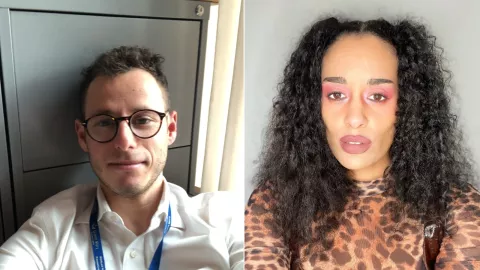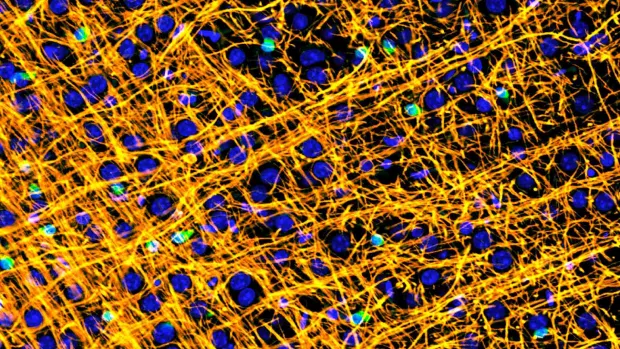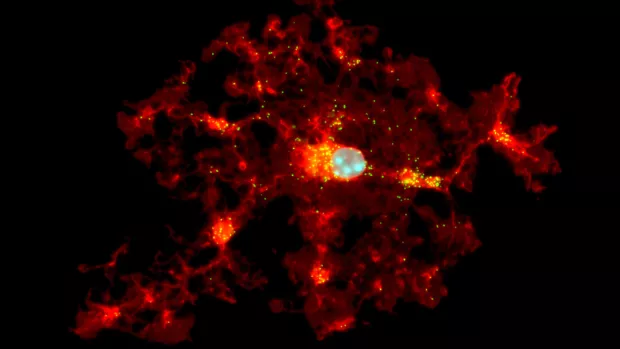
Are MS risk genes the same in people from different ancestries?
Hi, I’m Roxy an MS advocate and podcaster. I spoke to neurologist Dr Ben Jacobs about his PhD into MS genes and ancestry for my latest podcast. Here’s a peek at what we discussed.
So Ben, what are you hoping to find out and why?
We know certain genes can contribute to the risk of someone getting MS. But almost everything we know about MS and genetics is from studies in White people of European ancestry. People from African and South Asian ancestries have generally been left out.
So we’re going to analyse the genes of people from these groups using their saliva to find genetic risk factors for MS.
We want to know if the genes that make you susceptible to getting MS have the same effect in people of non-European ancestry. This is important because understanding the genetics of MS may help to develop better treatments and ways of diagnosing it in the future.
If genetic risk is only understood in people of European descent, there’s a chance that these developments won’t apply to people of other ancestries.
And what do we already know about MS genes in different ancestries?
There have been some studies with African American and South Asian people with MS. Generally they’ve shown key MS genes have similar effects in different ancestries. But they’ve shown there might be some differences too.
These were small studies so we want to research this on a bigger scale than has been done before. We’ll combine our results with those previous studies so that we build a bigger picture of the similarities and differences in genetic risk factors.
Why has nothing like this taken place on a larger scale before?
I think one reason is there’s a misconception that MS is less common in certain ethnic groups, and that means those groups have been left out of research. And it's really only in the last 10 to 20 years we've got the data showing that actually, people of African ancestry have the same MS risk as people of European ancestry. So it’s vital MS research includes more ancestral groups.
But there are also some scientific reasons. People of African ancestry have much more genetic diversity than people of European ancestry, so it makes some of the analysis more complicated.
The methods scientists use for measuring and analysing gene variants have been designed with European populations in mind, so there are some technical barriers that make our kind of study more challenging.
We're hoping to shatter some of these boundaries which have got in the way of people taking part in genetics research in the past.
How will this help underrepresented people with MS?
We hope to find genes that help predict the risk of MS specifically in people of non-European ancestries. We hope that in the long-term our results might help improve the ways we diagnose and treat MS, particularly in people from non-European ancestral backgrounds.
Hopefully it’ll lead to more research with underrepresented groups too. It’s incredibly important to improve and diversify our understanding of MS.
What do I do if I want to be part of the study?
We’re inviting people from any ancestry to take part in the study, but particularly encourage Black and Asian people with MS to sign up. You can take part from home by signing up on the study website. We’ll ask a few questions about your MS and then send you a kit in the post to collect some saliva.
We’ve also got sites in hospitals across the UK, in London, Romford, Birmingham, Leeds and Nottingham so you can sign up in person if you’d prefer.



